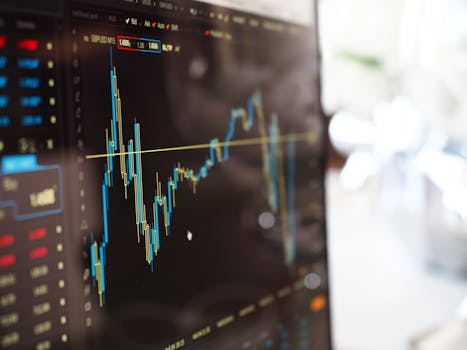
Economic Trends Shaping the Market

The global economy continues to evolve with various trends impacting market performance. This year, inflation rates have been a primary focus for investors. Central banks around the globe, including the Federal Reserve, have responded to increasing prices with a series of interest rate hikes. According to the latest economic reports, inflation rates have stabilized, but they remain a key concern for policymakers. Analysts suggest that understanding these trends is vital for investors predicting future market movements.
Stock Market Insights: A 2023 Overview

The stock market in 2023 has seen significant volatility, driven by various factors including geopolitical tensions, shifts in consumer spending, and the fear of recession. Leading indices like the S&P 500 have shown recovery signs, bouncing back from previous lows. Technology stocks have particularly been resilient, showing growth due to increased digital transformation.
Investment in green technology and the shift towards renewable energy have also influenced stock performance. Notably, more capital is flowing towards ESG (Environmental, Social, and Governance) funds as investors seek companies that align with sustainable practices.
Sector Performance Trends

Different sectors are reacting distinctively to economic changes. The technology sector has maintained robust performance owing to higher demand for cloud services and artificial intelligence solutions. In contrast, traditional sectors like retail and energy are facing pressures from supply chain disruptions, fluctuating raw material prices, and evolving consumer preferences.
Financial advisors are recommending a diversified portfolio approach to manage risks associated with this variability in sector performance. By allocating investments across multiple areas, investors can mitigate potential downturns in specific markets.
Impact of Global Events on Financial Markets

The ongoing war in Europe and tensions in trade relations are fostering uncertainty within financial markets. Trade policies and sanctions have led to increased costs for businesses, causing price hikes that trickle down to consumers. Economic sanctions imposed on countries can create further ripples throughout global supply chains.
In turn, these events affect investor sentiment, causing swings in stock and bond prices. Investors are advised to stay updated on global events, as these factors can change the economic landscape suddenly and profoundly.
The Role of Technology in Finance

Recent advancements in fintech are significantly changing financial services and market trading. The use of AI and big data analytics is enabling investors to make data-driven decisions, improving portfolio performance.
Investors can now access sophisticated trading tools that equip them with insights and real-time data. Technologies that facilitate the quick analysis of financial data allow for more agile investment strategies, proving essential in the often rapid-moving market~~risk conditions.
As we move closer to 2024, understanding these technological integrations will be crucial for stakeholders within every facet of the economy.






